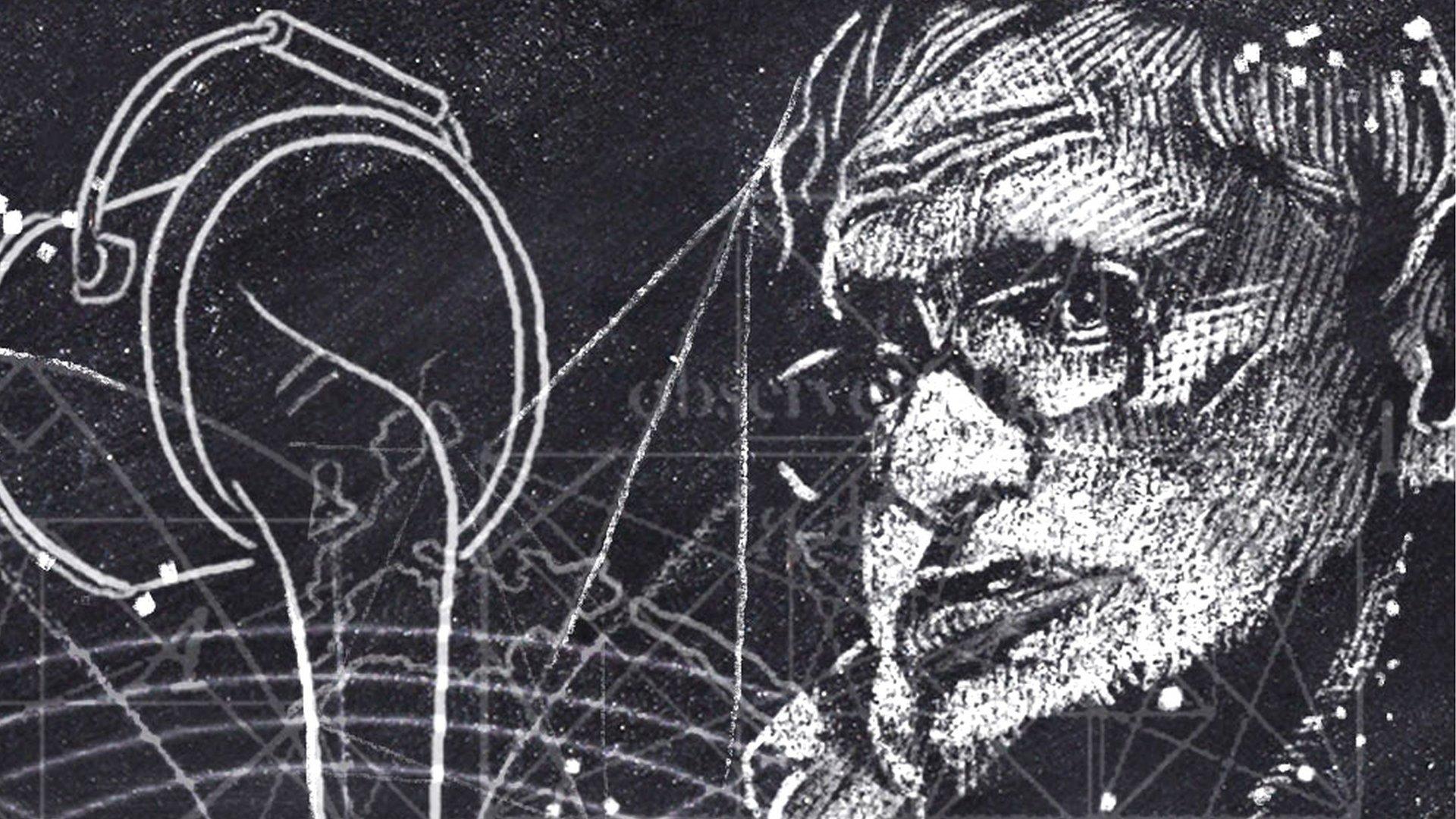Cardiff Uni astronomers observe black hole 'feasting'
- Published
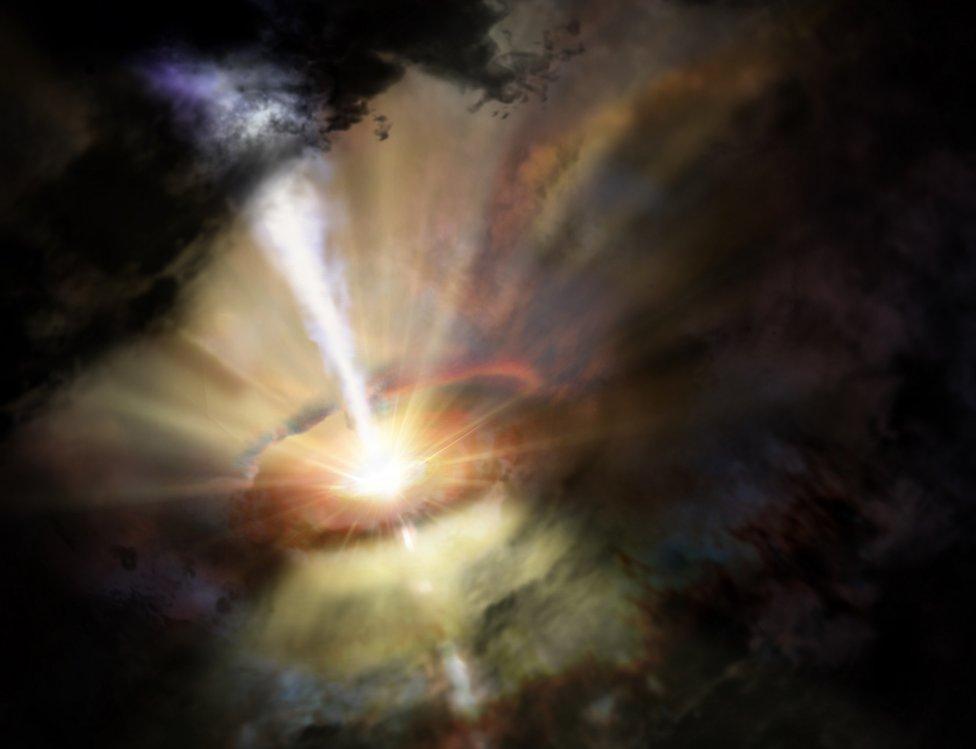
An artistic impression of the supermassive black hole
Astronomers at Cardiff University have observed a supermassive black hole preparing to "feast" in a galaxy one billion light years from Earth.
The team were studying the birth of stars when they discovered a supermassive black hole and saw clouds speeding towards it at 800,000 mph.
The observation supports a theory black holes feed on clouds of cold gas.
Dr Timothy Davis from the school of physics and astronomy said it was a "magical" experience.
He added: "At that very moment, nature gave us a clear view of this complicated process, allowing us to understand supermassive black holes in a way that has never been possible before.
"It's possible that the black hole has an ever bigger appetite and is devouring even more of these cold clouds of gas surrounding it."
Researchers said previous models suggested the gradual growth of supermassive black holes happened when surrounding hot gas accumulates smoothly onto them.
But these observations - a first - suggest in addition to this, these black holes may occasionally "gobble up" faster-moving cold gas as it comes nearby.
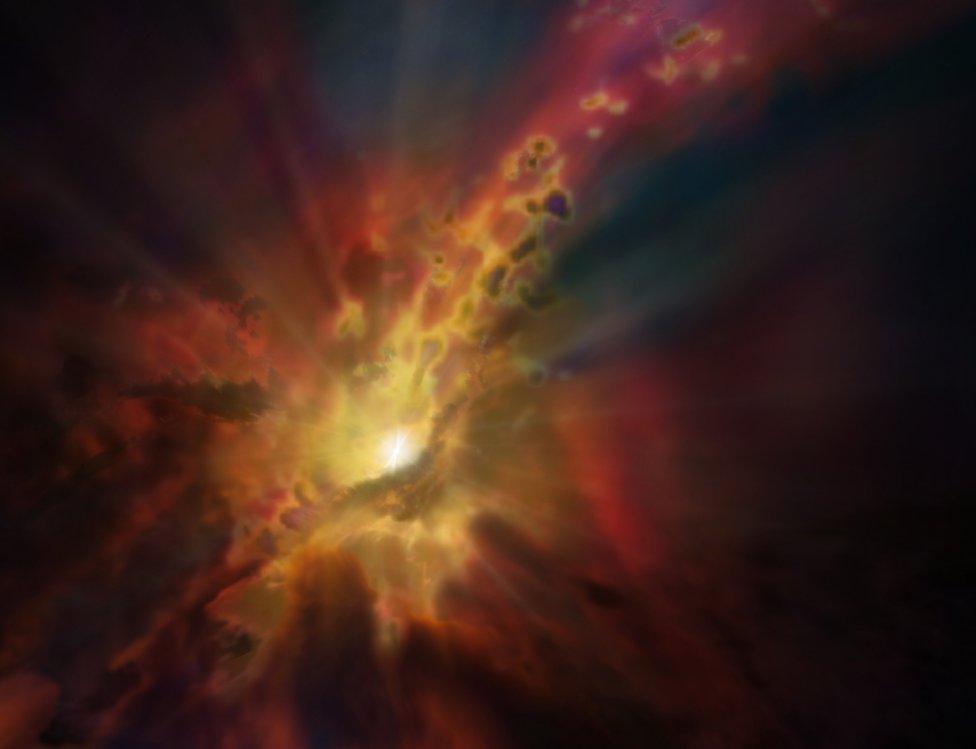
An artistic impression of the supermassive black hole
The astronomers are part of an international team studying the Abell 2597 galaxy, one of the brightest in the universe.
The results were published in the journal Nature on Wednesday.
Prof Michael Macdonald, co-author of the paper, from MIT's Kavli Institute for Astrophysics and Space Research, admits they got "very lucky."
"We could probably look at 100 galaxies like this and not see what we saw just by chance," he said.
- Published5 January 2016
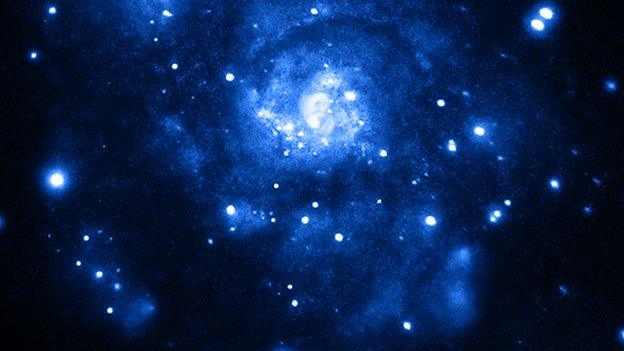
- Published11 February 2016
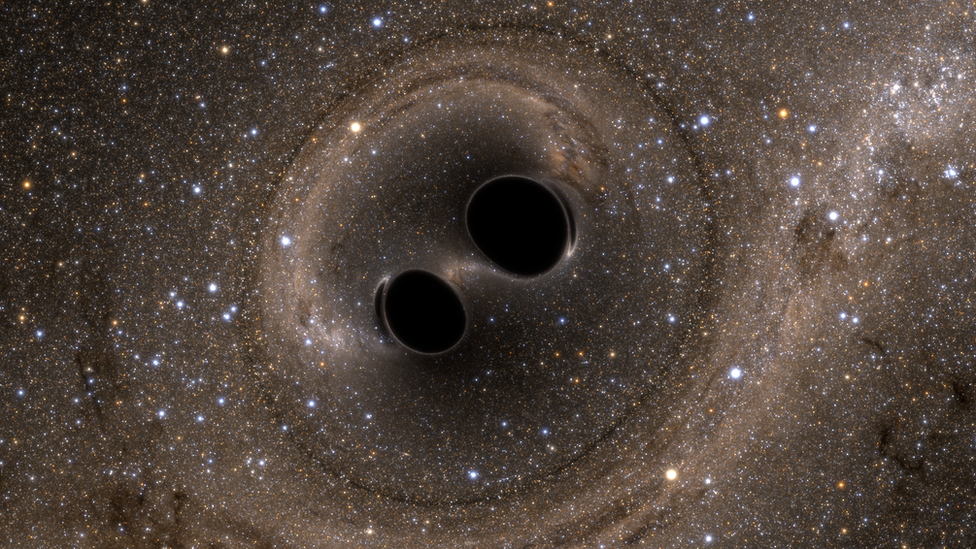
- Published6 February 2016
